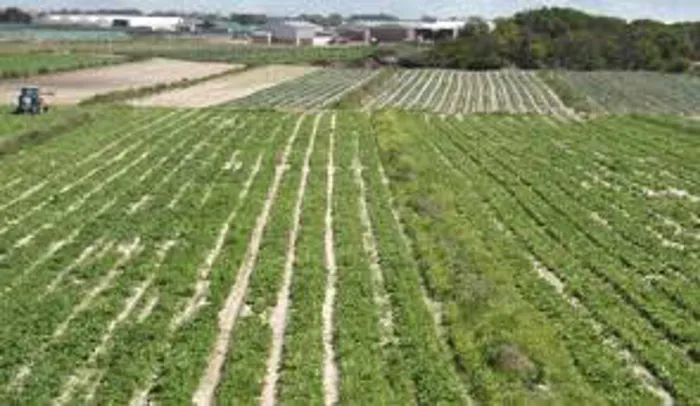
Johannesburg
- Agri SA says the Agricultural Landholdings Bill has not been well thought
through.
In a
statement issued on Thursday, the association said land ceilings will have very
many negative effects.
Government
recently proposed Government has proposed a new law banning foreigners
from directly buying agricultural land in South Africa.
Concerns have been raised that this may harm investor
sentiment.
Non-residents will be allowed to take long leases on the
properties, or the land should be majority-owned by a black South African,
according to the Regulation of Agricultural Land Holdings Bill, published in
the Government Gazette last Friday.
Foreigners considering selling land must give the
Minister of Rural Development and Land Reform first option on the property,
according to the bill, Bloomberg reported at the time.
The government would have 90 days to take up the offer,
after which it can be sold to a citizen.
Read also: Ban on direct land-ownership by foreigners
The minister will also impose limits on the size of farms
that people can own, depending on the region and following consultation,
according to the document, the wire service reported.
On Thursday, Agri SA said the Bill, published on March
17, only allows 30 days for comment, and it will seek an extension.
The association notes, “ever since 2011, the concept of land ceilings
has been hotly debated”. It adds numerous studies have found this concept to be
ill founded.
Ernest
Pringle, chairman of Agri SA’s Policy Committee on Agricultural Development, says
that international experience with ceilings demonstrated that land ceilings had
very many negative impacts, including:
l0 level1 lfo1">
mso-fareast-font-family:Symbol;mso-bidi-font-family:Symbol">·
The
fragmentation of agricultural land;
l0 level1 lfo1">
mso-fareast-font-family:Symbol;mso-bidi-font-family:Symbol">·
Affecting
productivity adversely;
l0 level1 lfo1">
mso-fareast-font-family:Symbol;mso-bidi-font-family:Symbol">·
That
it has contributed towards agricultural being a low-profit venture in several
parts of the world;
l0 level1 lfo1">
mso-fareast-font-family:Symbol;mso-bidi-font-family:Symbol">·
Neutral
or negative effects on poverty;
l0 level1 lfo1">
mso-fareast-font-family:Symbol;mso-bidi-font-family:Symbol">·
Unsatisfied
levels of equity and efficiency;
l0 level1 lfo1">
mso-fareast-font-family:Symbol;mso-bidi-font-family:Symbol">·
That
it had to large extent; failed to change agrarian structures- large
inequalities continue to exist;
l0 level1 lfo1">
mso-fareast-font-family:Symbol;mso-bidi-font-family:Symbol">·
A
negative impact on functional land rental markets;
l0 level1 lfo1">
mso-fareast-font-family:Symbol;mso-bidi-font-family:Symbol">·
It
has proved costly and difficult to administrate;
l0 level1 lfo1">
mso-fareast-font-family:Symbol;mso-bidi-font-family:Symbol">·
It
has been characterised by circumvention, contestation, corruption and
litigation;
l0 level1 lfo1">
mso-fareast-font-family:Symbol;mso-bidi-font-family:Symbol">·
It
led to tenure insecurity; and
l0 level1 lfo1">
mso-fareast-font-family:Symbol;mso-bidi-font-family:Symbol">·
It
discouraged land-related investment.
Pringle adds
that the proposed system would be costly, and that the huge administration cost
would outweigh any potential benefits government is punting.
“Also,
the proposed scheme will make planning extremely difficult if bits and pieces
of agricultural land were to be excised from farms all over the place.
This would likely leave farmers and beneficiaries with uneconomical units.
“Provision
of services to far-flung beneficiaries will also be a huge challenge. This
policy would deliver fragmented pieces of land spread across the furthest
reaches of a district. Small parcels may end up being ‘sliced-off’ larger landholdings
with little or no access to natural resources, infrastructure or services,” it
argues.
Agri SA
is of the view that the Bill also faces constitutional challenges and is in the
process of getting senior counsel opinion on that, says Pringle.